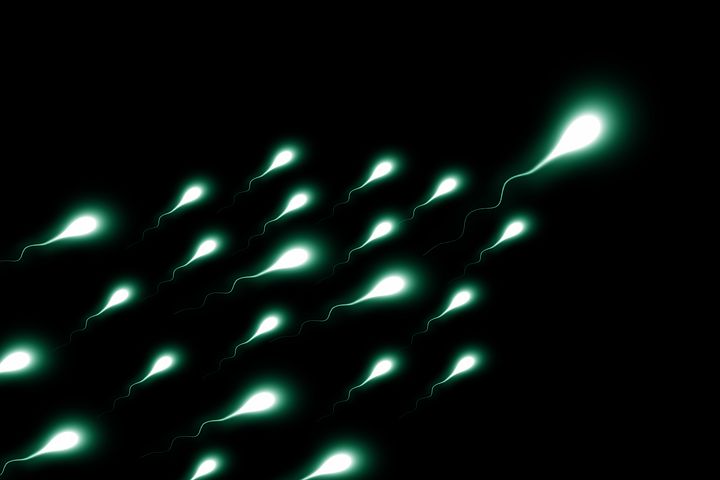As blogged previously, obesity can impair fertility in women (type ‘fertility’ into my search box to read on this). Could obesity also impair fertility in men?
The answer is yes. As discussed in detail in an excellent review, there are many ways that carrying excess weight can affect fertility in men.
Altered functioning of the hormonal control centres in the brain (hypothalamus and pituitary) play an important role. In obesity, the brain turns down the signals telling the testicles to function, causing testosterone levels to be low, and sperm production to be impaired. Why is the signal turned down? Well, there is a chronic state of inflammation throughout the body in obesity, with an increased level of many hormones and chemicals that are inflammatory, which cause a state of chronic inflammation in the brain that impairs function in the brain’s control centre in the hypothalamus. Insulin resistance, which worsens with weight gain, also has a negative impact on the hormone production from the hypothalamus and pituitary. Resistance to a hormone called leptin, and consequent lower production of a hormone called kisspeptin, also play a role.
In the testicles themselves, leptin resistance negatively impacts testosterone production and sperm production. More body fat around the testes increases their temperature which also impairs sperm production.
In men with obesity and insulin resistance, there is a decrease in the protein that carries testosterone around in the blood (called sex hormone binding globulin), which, long story short, results in more free circulating testosterone being converted to estrogen (yes, men make estrogen too!), which feeds back to have a negative impact on the brain’s ability to regulate testosterone production.
Erectile dysfunction is common in men with obesity for a number of reasons (including often low testosterone production). Obstructive sleep apnea is common in obesity and affects the natural circadian rhythm of testosterone production and the hypothalamic control functions as well. (not to mention that poor sleep isn’t good for sex drive!)
So what is the net consequence of all of this on sperm production? While some studies have shown lower sperm counts and a negative effect of obesity on sperm quality, other studies have not seen this effect. However, several studies have shown a higher frequency of DNA damage to sperm in men with obesity. In vitro fertiliziation has lower success rates in men with obesity as well. Just as for women with obesity, the children of men with obesity may have a higher risk of metabolic syndrome and obesity, which may be due in part to the one-generational DNA damage in sperm (called epigenetic changes).
The good news is that weight loss in men with obesity can improve testosterone levels, decrease insulin resistance and decrease inflammation, with the very little data available showing improvement in sperm quality and count. Erectile dysfunction often improves, and if 10% weight loss is reached, sleep apnea often improves as well.
Dr Sue Pedersen www.drsue.ca © 2020
Follow me on Twitter! @drsuepedersen












